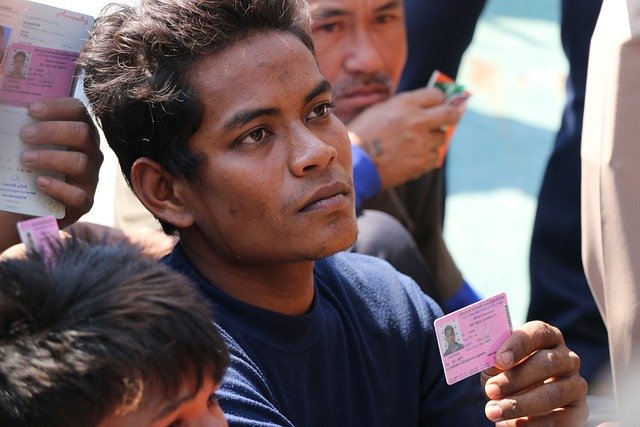AML Compliance Training in Singapore – Core Principles and Practices
AML (Anti-Money Laundering) compliance training in Singapore introduces participants to the fundamental principles of financial regulation and monitoring. The program covers essential topics such as customer due diligence, transaction reporting requirements, record-keeping standards, and risk-based approaches. The training provides a structured overview to help understand obligations under local and international AML frameworks.

What Are Customer Due Diligence and Verification Steps?
Customer due diligence (CDD) forms the foundation of effective AML compliance programs in Singapore. Financial institutions must implement comprehensive verification procedures to identify and verify customer identities before establishing business relationships. The process involves collecting and validating personal identification documents, understanding the nature of customer business activities, and assessing the purpose of account relationships.
Enhanced due diligence procedures apply to high-risk customers, including politically exposed persons (PEPs) and clients from high-risk jurisdictions. These enhanced measures require additional documentation, senior management approval, and ongoing monitoring of business relationships. Regular updates to customer information ensure that institutions maintain accurate records throughout the relationship duration.
How Do Transaction Monitoring and Reporting Standards Work?
Transaction monitoring systems play a crucial role in detecting suspicious activities within financial institutions. These automated systems analyze transaction patterns, identify unusual behaviors, and flag potentially suspicious activities for further investigation. Singapore’s financial institutions must establish clear thresholds and parameters for monitoring various transaction types.
When suspicious transactions are identified, institutions must file Suspicious Transaction Reports (STRs) with the Suspicious Transaction Reporting Office (STRO) within the Commercial Affairs Department. The reporting process must occur promptly, typically within specific timeframes mandated by regulatory authorities. Training programs emphasize the importance of accurate and timely reporting to support national anti-money laundering efforts.
What Are Record-Keeping Requirements in AML Compliance?
Comprehensive record-keeping requirements ensure that financial institutions maintain adequate documentation for regulatory review and investigation purposes. Singapore’s AML regulations mandate that institutions retain customer identification records, transaction records, and correspondence for minimum specified periods, typically five to seven years depending on the record type.
Electronic record-keeping systems must ensure data integrity, accessibility, and security throughout the retention period. Training programs cover proper documentation procedures, storage requirements, and retrieval processes that comply with regulatory standards. Regular audits verify that record-keeping practices meet both local and international compliance expectations.
Understanding Risk-Based Approaches to Financial Regulation
Risk-based approaches allow financial institutions to allocate compliance resources effectively by focusing on higher-risk areas and customers. This methodology requires institutions to conduct regular risk assessments, categorize customers based on risk profiles, and implement appropriate control measures proportionate to identified risks.
Training programs teach professionals how to evaluate various risk factors, including customer types, geographic locations, products and services, and delivery channels. The risk-based approach enables institutions to enhance due diligence procedures for high-risk situations while maintaining efficient operations for lower-risk customers and transactions.
How Do AML Frameworks in Singapore Compare to International Contexts?
Singapore’s AML framework aligns with international standards established by the Financial Action Task Force (FATF) while incorporating specific provisions relevant to the local financial landscape. The Monetary Authority of Singapore (MAS) serves as the primary regulator, working alongside other agencies to ensure comprehensive coverage across different sectors.
The framework incorporates elements from international best practices, including the Basel Committee guidelines and regional cooperation initiatives. Training programs highlight similarities and differences between Singapore’s requirements and international standards, enabling professionals to understand compliance obligations in cross-border contexts.
| Training Provider | Course Duration | Cost Estimation |
|---|---|---|
| Singapore Institute of Technology | 2-3 days | S$800 - S$1,200 |
| Professional Development Consortium | 1-2 days | S$600 - S$900 |
| Financial Training Company | 3-5 days | S$1,000 - S$1,500 |
| Compliance Learning Solutions | 1-3 days | S$500 - S$1,000 |
Prices, rates, or cost estimates mentioned in this article are based on the latest available information but may change over time. Independent research is advised before making financial decisions.
AML compliance training in Singapore provides financial professionals with essential knowledge and skills to navigate complex regulatory requirements effectively. The comprehensive approach covering customer due diligence, transaction monitoring, record-keeping, and risk-based methodologies ensures that institutions can maintain robust compliance programs. As Singapore continues to strengthen its position as a global financial center, ongoing investment in AML compliance training remains crucial for maintaining the integrity and reputation of the financial system while meeting both local and international regulatory expectations.




